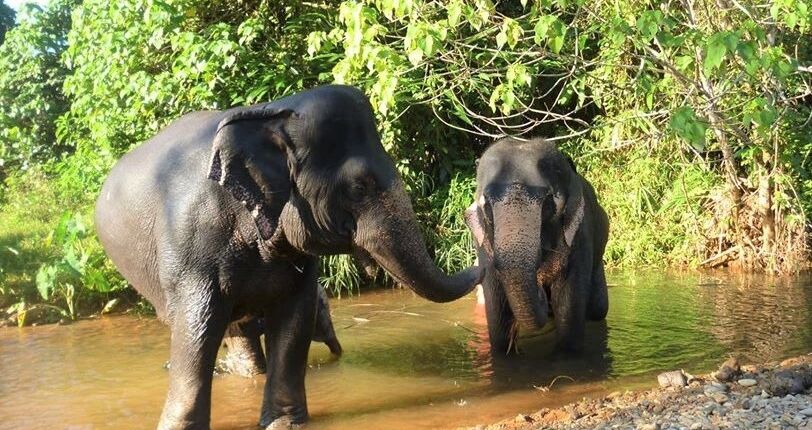Covid-19 outbreak contributes to elephant population decline in Southern Thailand

The following was submitted by the Southern Thailand Elephant Foundation.
There has been a significant decline in the elephant population of Southern Thailand as a result of the Covid-19 pandemic. In Phang Nga Province, which normally has more domesticated elephants than any other Southern Thailand province, the elephant population has dropped by a third of its normal number.
This fall in elephant numbers is linked directly to the Covid-19 pandemic and the decimation of Thailand’s tourist industry (even now there is a Covid emergency decree in place in Thailand). Without tourists to visit the elephant parks and sanctuaries that abounded in the region, there is no income and therefore no money to buy food for the elephants.
The realisation that the Covid-19 lockdown would affect the tourist industry for the long term meant that many mahouts had little choice but to return to their homes and families, many of which are in the north of Thailand. Of course, they took their elephants with them, and so, at least for now, Southern Thailand has been depleted of its elephant population.
Some owners transported their elephants to Surin, a major elephant centre in northern Thailand, from where some government support is being provided during the pandemic. But this is a journey of more than 1,200 kilometres and many owners cannot afford the cost of a truck ride for their elephant over such a distance.
Most of the elephant parks and camps in Southern Thailand are now closed, and some will never reopen. Only a few parks or sanctuaries are still operating, and these are managing to care for their elephants only as a result of their own fund-raising efforts. Some of these parks have even taken in other elephants from owners who were struggling to feed them. Adult elephants drink around 100-200 litres of water a day and consume 200-300 kilograms of vegetation, costing more than 400 baht a day to feed.
When the lockdown first came to Thailand, many elephant parks in the region had closed almost overnight and simply told the elephant owners to remove their animals. But these owners were mostly mahouts who had one or two elephants contracted to a tourist park.
Without any income from the park, the mahouts were left struggling to feed their elephants and they had no money to send back to their families. Aware of the impending crisis as the parks closed their doors, the Southern Thailand Elephant Foundation stepped in to provide food for the elephants in need.
Our ‘Feed the Starving Elephants’ campaign, which ran from April to July last year, raised more than 1.7 million baht and our volunteers on the ground in Southern Thailand delivered over 700 truckloads of food. As the drift north began last summer, and the number of elephants in the region declined, the foundation was able to wind down its campaign.
When tourists eventually return to Southern Thailand in significant numbers, hopefully, the elephants will return too. For so many people, the chance to get up close, stroke, and feed these magnificent creatures is the highlight of their holiday.
Latest Thailand News
Follow The Thaiger on Google News:


























